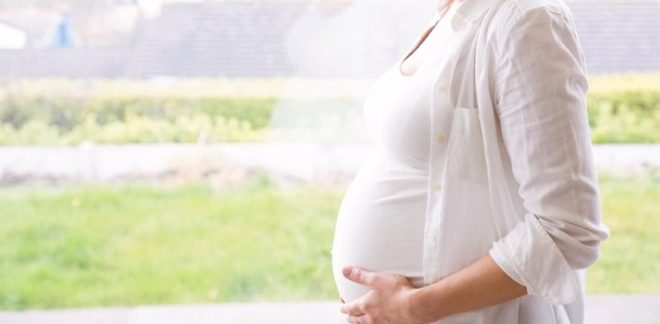Features of childbirth after 40 years
The age of pregnant women in recent years is not younger. On the contrary, the first childbirth under 40 years and even later becomes quite normal and commonplace. And as a second or third child at this age in general will not surprise anyone. So the time has been ordered - modern women first get an education, build a career, carefully choose a partner and only then, when there is a feeling of a certain stability, think about the birth of an heir.
Another situation - the child grew and left. The woman understands that she really wants to give her love to someone again, and she can also become a mother physiologically. Whatever the cause of pregnancy at this age, it is worth knowing that childbirth after 40 years has its own characteristics. About them and tell in this article.
Attitude in society
A woman who is about to give birth after 40 years, from the point of view of obstetricians, belongs to the category of old-aged. No matter how insulting this word may sound, this is just a term that is related not even to age, but to possible risks and complications that may arise before and after childbirth.
The concept of "old-aged" changed regularly. In the early 90s of the last century, doctors considered those pregnant women to be such, who are going to give birth after 27 years. Now the age bar raised to 36 years. But later childbirth in 40 and older will be considered only in Russia. In the United States and most European countries, this concept in obstetrics does not exist, in general. This means that the effect of age on pregnancy and childbirth is somewhat exaggerated.
Of course, you rarely meet a woman who never got pregnant by her 40s. Unfortunately, the obstetric history of such women in most cases is very rich in facts and events - some were treated for infertility for a long time, others had abortions, considering the birth of the child untimely, the third had to resort to reproductive services and agree to IVF for 40 years.
In addition, by the age of 40, up to 90% of women have one or more chronic diseases. It is this history that affects the carrying of the fetus and the subsequent delivery. The age itself does not have much influence.
In Russia, an aging woman is looked at with astonishment bordering on sympathy. Approximately the same look and in women's clinics, although in recent times there have been some positive trends.
If a woman is determined to become a mother of 40 or more, she needs to learn to be firm and decisive, impenetrable and invulnerable to other people's curiosity, mockery, ridicule. From the point of view of religions, childbirth in balzakovskom age is not prohibited. Neither in Orthodoxy, nor in Islam, nor in Buddhism does there exist age limits for the first and subsequent genera.
What are dangerous?
As we have already found out, the prognosis of pregnancy and childbirth is 90% dependent on the history of the woman, and not on her calendar age. But there are 10%, which we should talk about separately. These are typical age-related risk factors. In the first place, the woman’s ovarian reserve is aging and depleting every year. This means that even if the pregnancy comes, the quality of the genetic material (in this case, the egg) will leave much to be desired. First of all, it is dangerous to have a higher risk of having a child with genetic and chromosomal abnormalities.
According to statistics, at the age of 20-24, a pregnant woman has the risk of having a baby with Down syndrome in 1 case per 1562 pregnancies. Among the age group of 35-39 years, "special" children are born in 1 case for 214 births.After 40 years, the risk of having a child with Down syndrome rises to 1:19, at 43 he is 1: 14. The risk of Edwards syndrome in an elderly mother's child is also higher than in others. Some other chromosomal abnormalities that make it impossible for a baby to live a full life, and in some cases even fatal, are also directly related to the woman’s age and the quality of the genetic material of its oocytes. The risks increase if the father of the child is also far away in 40 years, since the quality of the spermatozoa and the genetic information contained in them also suffers with age.
Chronic diseases are dangerous. Four decades is a solid period during which even a person leading a healthy lifestyle acquires certain ailments. Diseases of the mother can affect the health of the baby, the process of gestation and birth.
Big risk is miscarriage. Pregnancy requires the mobilization of all organs and systems, global changes and restructuring are taking place in the body of the expectant mother. If a woman has chronic diseases, they can manifest in the process of pregnancy, which complicates gestation and can cause spontaneous interruption.
The state of health of a woman who is already over 40 is greatly influenced by the ecological situation - prolonged living in polluted, environmentally unsafe regions can lead not only to the aging of genetic material in eggs, but also to mutation of certain genes, which, again, is fraught with congenital defects fetal development, genetic abnormalities.
The muscular tissue of a woman at the age of 40 is no longer as elastic as at 20, and therefore independent labor is considered acceptable, but rather risky. In such women in the process of physiological labor, primary or secondary generic weakness often develops, and the loads on the vessels and the heart during labor can be overwhelming.
The opinion of the doctors on this subject is as follows: if a woman managed to get pregnant and carry out the baby after 40 years, then there is no need to expose her to an additional considerable risk in childbirth. Russian Ministry of Health specifies age prerequisites indications for the operation of the planned cesarean section.
Of course, a woman may refuse the operation and insist on natural childbirth, but in this case she should know that the risk of bleeding during childbirth, premature detachment of the placenta will be 2.5 times higher because of the age-related hypotension of the muscles, the likelihood that emergency caesarean section will be high, and this emergency emergency surgery further increases the risk of developing severe postoperative complications. Planned cesarean section in this regard is more secure.
Nevertheless, the risks of miscarriage, missed abortion, the birth of a child with genetic diseases and other “horror stories” that “frighten” pregnant women after 40 years of age exist absolutely for all age groups of pregnant women. The probability of having a healthy child over the age of 40 is, and it is not as small as it may seem. You just need to approach the issues of childbearing and organization of birth in a responsible manner.
What are the advantages?
The main plus is in the birth of a new person. Kids delight their parents, regardless of the age of the mother and father, and by the age of 40, a woman and her partner already know how to appreciate thin and fragile moments of joy in life.
Usually a child whom a woman goes to give birth in a balsac age is desired. A woman is already able to weigh and analyze her decision. Mom prepares for the birth of such a child more carefully than for the birth of the first child at the age of 20. Needless to say, with what love a woman will relate to the firstborn, born after 40!
Psychologically, emotionally and mentally, mothers with rich age experience are more mature, and you cannot argue with that.Their decision is realized, the financial situation at this age usually allows you to provide the child with everything necessary.
Late children are usually surrounded by the love and care of their parents. As a result, they are considered more talented, but not because the talents are given to them from above, but because the parents try to devote a lot of time to raising such a baby. They love and adore him, surround him with the atmosphere of a calm, tender aura of participation. It should be noted that late children respond in the same way, and their relationship with their parents is usually very trusting and warm.
Pregnancy forties
"Age" moms show early registration, up to 12 weeks. It is possible that due to the state of health of the pregnant woman will have to visit the attending physician more often. Along with the rest of the pregnant women, future mothers, who are over 40, will be offered prenatal diagnostics, designed to establish the basic risks of having a fetus with chromosomal abnormalities.
Screening studies are carried out for a period of 11-13 weeks, 16-18 weeks. In addition, an individual plan of examinations such as an ultrasound scan, fetal CTG, etc., will be drawn up for the woman, depending on which complications are revealed (if they become apparent) during pregnancy. On the recommendation of gynecologists, additional invasive procedures for prenatal diagnosis of the fetus can be performed - amniocentesis, cordocentesis, and so on. For such procedures, the patient’s consent is required.
If a woman is prescribed a planned caesarean section, hospitalization is carried out in advance - at the 38th week of pregnancy, at 39 weeks she is undergoing a planned operation. In the absence of complications in the postoperative period, the woman is discharged on the fifth day. After physiological birth, if any, the discharge will take place on the third day.
Myths and Reality
Later births are shrouded in a veil of myths, not all of which correspond to reality. We give the most common of them.
Pregnancy and childbirth after 40 years rejuvenate the body
Indeed, at the hormonal level, there is a strong "shake-up" of the female body. Increased production of estrogen, progesterone, oxytocin helps to improve the blood supply to organs and tissues. But the main influence is made by the psychological factor - a woman with the birth of a baby goes into the category of young mothers. It is this status that is the best way to promote self-esteem and a sense of youth.
At the physiological level, the effect of hormones is not as strong as those who think that giving birth after 40 years is a way to rejuvenate. Sleepless nights, nerves, problems with lactation and other problems inherent in mothers of newborns, may well offset the effect of hormones. By the way, night vigils at the bed, turning into daytime wakefulness, are harder tolerated by “old mothers” than by mothers of 20 and even 30 years. Lack of sleep and fatigue quite quickly tell on the state of health and appearance.
In addition, childbirth undermines the state of immunity. It is possible that chronic diseases will worsen, which is not conducive to rejuvenation and healing in principle.
Loving women live longer
This is not a myth, but the truth itself. Israeli scientists studied the life expectancy of women who conceived and gave birth to their children in 43-45 years. They found a modification of some genes, as a result of aging somewhat slows down. On average, women who give birth to a first-born child after 40 years of age have a higher chance of surviving up to one hundred years. Life expectancy increases by an average of 10-15 years.
After 40 years in the postpartum period, it is more difficult to lose weight and return to previous forms
It all depends on the particular woman. There is no general pattern. Although there is some truth in this, because with age the metabolism slows down, the skin becomes less elastic, the muscles are more relaxed, which makes the process of losing weight longer, but not hopeless, as evidenced by numerous reviews of moms "aged."
Famous Late Women
- Hollywood actress Monica Bellucci gave birth to her first child a couple of weeks before her fortieth birthday. At 45, she became the mother of another child.
- Actress Halle Berry's daughter gave birth to 41 years. This was her first child. On the second she decided in five years - in 46 she became the mother of a charming little boy.
- Actress Salma Hayek first gave birth at the age of 41. A daughter was born. At the same age, Kim Basinger made up her first birth.
- Russian actress Marina Mogilev became a mother at the age of 41. She gave birth to a perfectly healthy and beautiful daughter Masha.
- Nicole Kidman struggled for a long time with infertility, and only after she adopted two children, she was able to get pregnant. Her daughter appeared when the actress was 40 years old. Two years later another daughter appeared - a surrogate mother carried her out. Nicole herself decided not to risk it.
- A 40 year old girl was born by a Russian TV presenter and actress Svetlana Permyakova. Another actress Olga Drozdova first became a mother in 42 years.
- At the age of 41, Mariah Carey became the mother of two children at once - her twins were born, conceived with the help of in-vitro fertilization.
The list of women who became mothers after 40 years can be extended by such names as Kelly Preston, Gina Davis, Brooke Shields, Celine Dion.
Those who say that childbirth at this age is dangerous, cite as an example Evelyn Bledans, who raises a boy with Down syndrome. Positive examples are much more.
On the pros and cons of late delivery, see the following video.


























